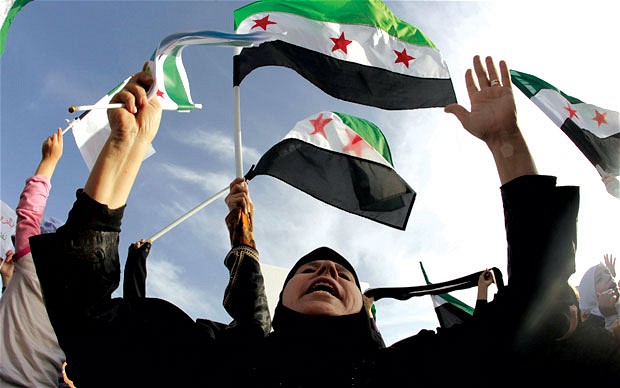The uprising against Syrian President Bashar al-Assad is moving into its third year, growing increasingly violent and becoming an ever bigger concern for Syria’s neighbors and the world.
 What began as a series of small, spirited demonstrations has turned into an unrelenting fight pitting armed rebels and jihadists against a government that analysts say seems desperate at times.
What began as a series of small, spirited demonstrations has turned into an unrelenting fight pitting armed rebels and jihadists against a government that analysts say seems desperate at times.
“The Assad regime continues to think that it is winning. It continues to think that it will survive. And, unless and until it can be persuaded that it faces the possibility of defeat, I’m not sure that we are going to find it willing to enter any kind of serious negotiating process,” said Middle East analyst Steven Heydemann, who works at the United States Institute of Peace.
The United Nations estimates 70,000 people have been killed. One million-plus Syrians are refugees.
The conflict threatens to widen.
Violence has been spilling over Syria’s borders. There have been gun fights in Lebanon, skirmishes in Iraq and rockets falling in Turkey.
And Western officials are accusing Iran and Hezbollah in Lebanon of funneling arms to the Syrian government.
Salman Shaikh, director of the Brookings Doha Center, said, “They have doubled-down. They are providing more relief, more aid to this regime.”
Shaikh said the repercussions of a budding regional war may grow, and that Syria in turmoil may make it more difficult for the West to deal with Iran as it pursues its nuclear ambitions.
And then there’s Israel, which increasingly is concerned about rebel activity along the border, including the recent hostage-taking of U.N. peacekeepers in the Golan.
For now, Western powers are continuing to push for a political solution in Syria, funneling more non-lethal aid to the opposition.
Still, the special U.N. envoy has warned again that what began as a small uprising now is among the most dangerous crises in the world.
“It is either peaceful, consensual, political solution, or the situation will be similar to or even worse than Somalia,” said Lakhdar Brahimi, U.N./Arab League special envoy for Syria.
Such warnings likely are of little comfort to Syrians, who are wondering if and when the violence will come to an end.
VOA















